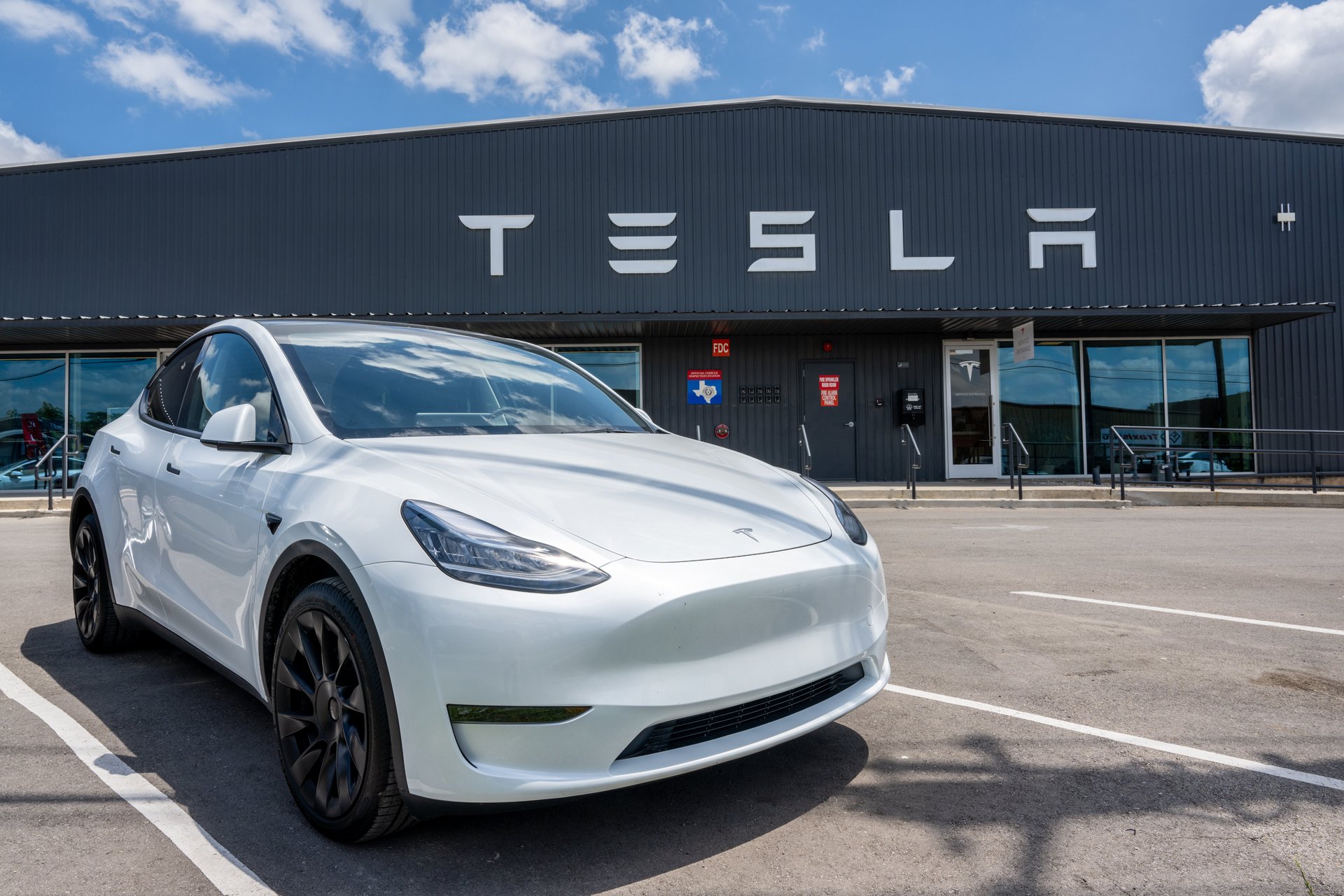Tesla has slashed production of its best-selling EV in China
Tesla cut production of its best-selling Model Y by a third last month because of slowing demand

Tesla is slashing Chinese production of its best-selling electric vehicle as demand in the world’s largest auto market dwindles.
Suggested Reading
Data from the China Association of Automobile Manufacturers (CAAM) shows that production at Tesla’s Shanghai gigafactory in March sank 17.7% year-over-year to 49,498 vehicles. In April, production dropped 33% year-over-year, to 36,610 vehicles.
Related Content
Reuters, citing a person familiar with the matter, reports that Tesla has cut production in response to slowed demand of the Model Y, which is one of two EVs made in the Shanghai facility. It’s also a reaction to difficulty competing with domestic rivals’ low prices: BYD, Tesla’s chief Chinese rival, sells the Seagull hatchback car for less than $10,000. In April, Tesla cut prices on its vehicles in several markets, including China.
Overall, Tesla’s production in Shanghai dropped 5% year-over-year across the first four months of 2024. Lower Model Y output was somewhat offset by boosted Model 3 production; Tesla last month launched the Model 3 Performance in China.
Tesla’s sales in the Chinese market last month dropped 18% year-over-year and 30% from a month earlier, according to the China Passenger Car Association.
Tesla’s “fireman” — automotive senior vice president Tom Zhu, who has been credited with turning Tesla’s Gigafactory Shanghai into a major performer — has recently returned to his role overseeing the Chinese market. That move comes in the wake of multiple rounds of layoffs and an executive-level restructuring.
Rising tensions
The Austin, Texas-based automaker has also told suppliers to start making components used in its vehicles outside China and Taiwan, citing rising geopolitical tensions as the U.S. elections draw closer, according to Nikkei Asia. One supplier executive told Nikkei that Tesla is the “most aggressive” at trying to dodge risks surrounding China and Taiwan.
President Joe Biden earlier this month said tariffs on some EV imports will quadruple from 25% to 100% to prevent Chinese automakers from flooding the market with cheap cars. The United States Trade Representative on Wednesday said those tariffs will take effect on August 1, setting the stage for a potential trade war.
China’s Commerce Ministry has said the tariffs will “seriously impact the atmosphere of bilateral cooperation” and threatened to “take resolute measures to defend its rights and interests. A affiliated business group told the state-owned Global Times that tariffs of up to 25% could be raised on imported vehicles.
Tesla CEO Elon Musk on Thursday said “Neither Tesla nor I asked for these tariffs,” while speaking at the VivaTech conference in Paris, adding that he was “surprised” at the announcement.
Musk added that he is in favor of “no tariffs and no incentives for electric vehicles, or for oil and gas.”
Tesla, like other EV makers, has been a major beneficiary of both local incentives and the $7,500 incentive offered in the U.S. Inflation Reduction Act for EVs. Tesla’s then-chief financial officer Zach Kirkhorn in January 2023 told investors that the company was “pretty well-positioned” to take advantage of the legislation’s credits.
Musk, who has previously said that Chinese companies would “demolish most other companies in the world” without trade barriers, said Thursday that Tesla competes “quite well” in China without deferential support. Musk has been noted to have a “cozy” relationship with Beijing’s leaders, including President Xi Jinping, as Tesla seeks to expand operations in China.
On Thursday, Tesla officially began building its Shanghai Megafactory, which will be the company’s first dedicated energy storage facility outside the U.S., Teslerati reports.